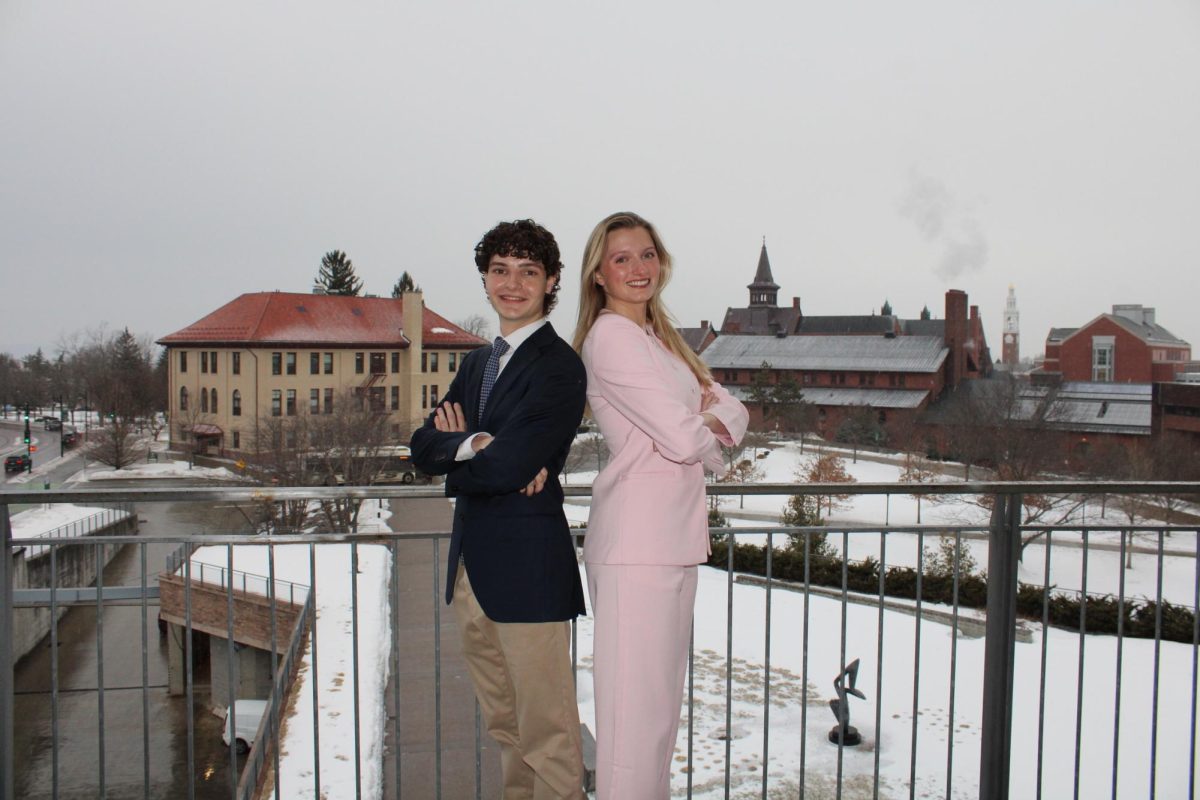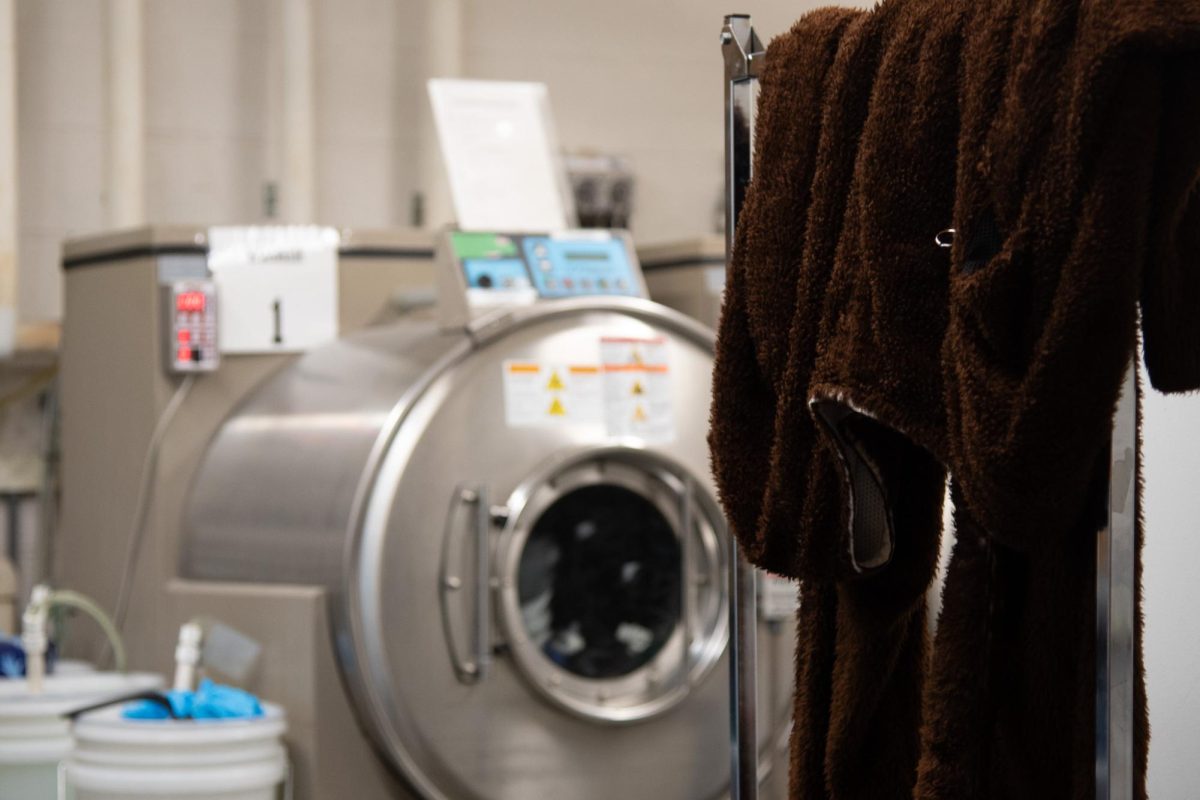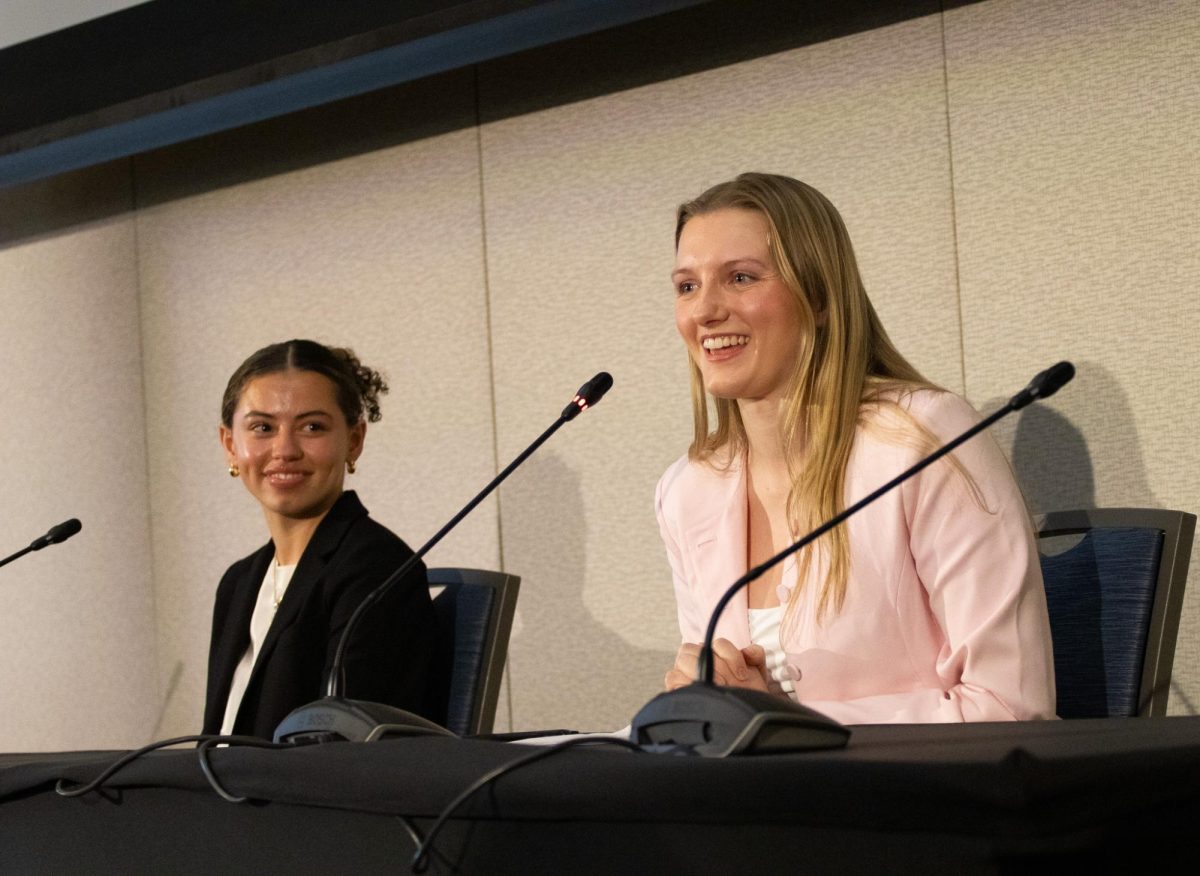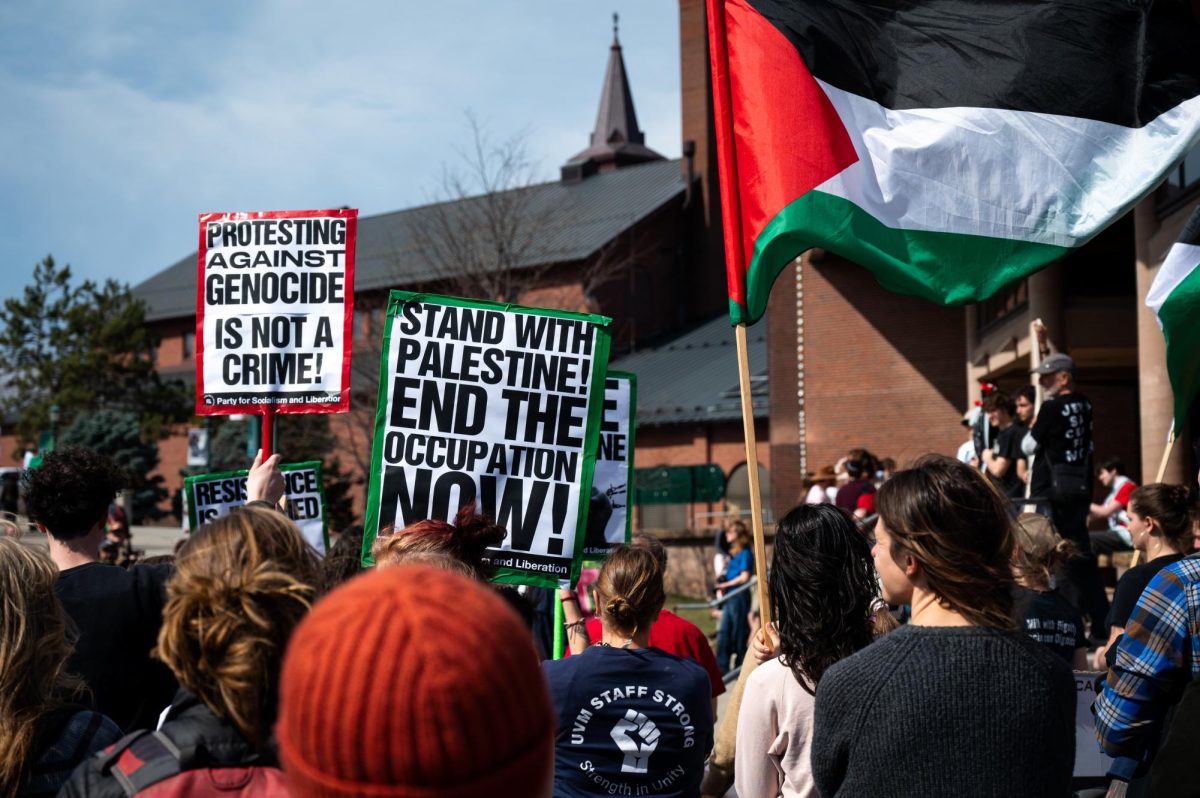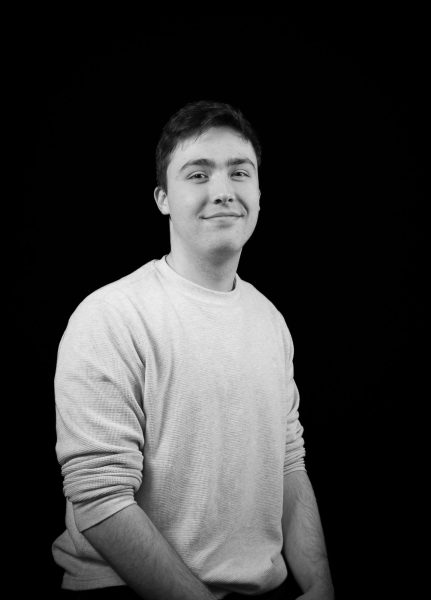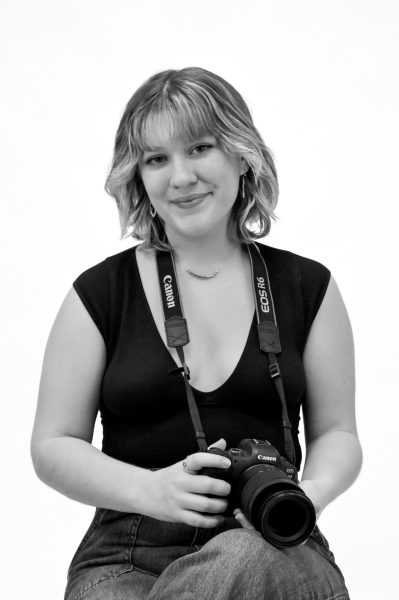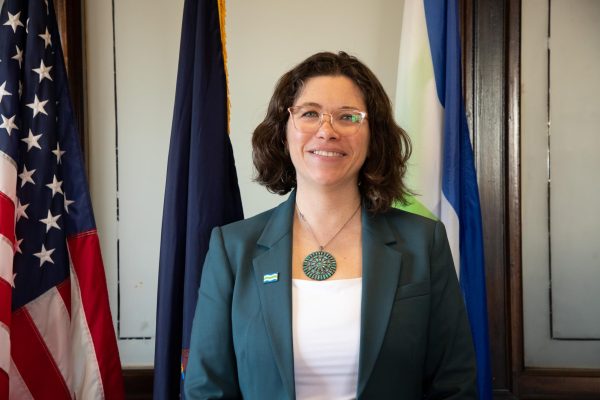
As of April 1, Emma Mulvaney-Stanak is Burlington’s new mayor. She’s also Burlington’s first woman and LGBTQ+ person to hold the position.
Mulvaney-Stanak, a Progressive, earned 51.18% of the vote in her race for mayor against Democratic candidate Joan Shannon.
“It was a pretty historic, momentous start because we’ve never had a woman [as mayor] ever in the history of the city of Burlington,” she said. “That’s 159 years. [We’ve] also never had an out LGBTQ+ person.”
When asked about how she felt about stepping into the position, Mulvaney-Stanak said she recognized the symbolic importance she holds for marginalized communities.
“It’s very out of body,” she said. “I am that first person, but I represent […] a lot of optimism and hope and sort of relief that there’s finally representation that represents a much larger swath of our community that has never held this role before.”
In regard to her top priorities in her first term, Mulvaney-Stanak said she’s focused on preparing the next fiscal year budget, as well as community safety.
“I want to deliver a budget that’s affordable and sustainable. I want to ask my department heads to really go back and look at the budgets that they’ve been starting to prepare with the prior mayor to make sure that we are not just cutting services across the board,” she said.
Ensuring each city department, including the police department, is an optimal size is another budget-related priority for the new mayor.
“We cannot hire police officers at the rate for which they’re budgeting,” she said. “There’s not enough in the police academy. There’s just not enough people in the state that we can recruit. So we have to be responsible fiscally to make sure we’re not putting more positions in a budget because we have to raise revenue.”
However, this does not mean she will stray from building up the department’s ranks, she said.
“We can still say our goal is to rebuild the police department, for example, up to x number of officers, but we’re going to do this over three fiscal years based on, again, evidence and data,” Mulvaney-Stanak said.
Mulvaney-Stanak said she wants to address issues such as substance use disorder, homelessness and mental health disorders.
“Those are all things that lead people into a very unsafe set of circumstances and so we have an obligation as a community and as community leaders to get to the root causes of supporting people in those situations,” she said
Mulvaney-Stanak said she is focused on creating evidence-based policies that address root causes rather than just adding police officers.
“They’re not prevention mechanisms, police officers,” she said. “There’s a lot of folks in our community who are queer, who are BIPOC, who don’t necessarily feel safe with police.”
Mulvaney-Stanak said addressing these root causes is something that will take several years if not her entire term. However, she wants to use her first few months to begin addressing immediate problems, like improving the relationship of the police department with Burlington’s Community Justice Center.
“Our police department is not working in tandem with the Community Justice Center as it should be,” she said. “There’s some systems that we can start to reintegrate and think a little bit more from a human-based place where people can start to feel like their community is safer because it’s reaching out to them and supporting victims.”
Mulvaney-Stanak said she wants to work with UVM to help both the city and the University thrive.
“UVM and the city’s success are intertwined,” she said. “If Burlington’s not doing well, UVM’s not going to do well, and if UVM’s not doing well, the city’s not going to do well.”
Mulvaney-Stanak said part of that partnership is figuring out how to involve UVM in making Burlington thrive, as its students and many of its faculty and staff are community members.
“I’ve seen the leadership over the years at UVM sometimes act like an island,” she said. “That’s just not the case, because many students […] live off-campus and are community members. You’re not only working in downtown businesses, you’re hopefully deciding and trying to put down roots and stay here.”
Mulvaney-Stanak had previously cosponsored the H.311 bill in the Vermont legislature, which looked at a student enrollment cap in relation to the rental vacancy rate in the city of Burlington.
“Until the vacancy rate gets to a healthy place again, we cap student enrollment,” she said. “It’s not a permanent thing, it’s just a reality that we need to be mindful about bringing more people here before we have enough physical housing, and enough affordable housing.”
Mulvaney-Stanak said affordability and well-being for students is important.
“You deserve affordable housing whether it’s campus provided and on campus, or off campus,” she said.
Mulvaney-Stanak said the new Memorandum of Understanding will be an important bargaining chip in the city’s relationship with the University.
An MOU is an agreement between two or more entities expressing an intended partnership through collaborative activity, according to UChicago Global.
Mulvaney-Stanak said UVM makes payments to the city for emergency services, wastewater, and general infrastructure.
Burlington’s budget for fiscal year 2024 includes payments from UVM of $1.4 million dollars.
During the mayoral debate at UVM Feb. 15, when asked about the Israel-Hamas war, Mulvaney-Stanak said she supported a bilateral ceasefire.
As a state legislator, Mulvaney-Stank signed onto a letter to President Joe Biden asking him to demand a permanent ceasefire in Gaza.
⸻
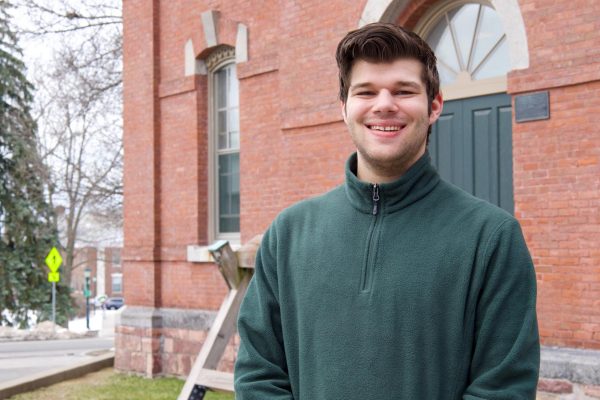
Marek Broderick, the new city councilor representing Ward 8, is also a UVM student. Broderick, a junior, said he thinks it necessary for Ward 8’s representative to be a student.
“It’s definitely an exciting opportunity,” he said. “The relationship between UVM and the city is definitely a well-talked about issue, especially in regards to things like housing. So, I think it’s only right that we have a current student representing us.”
Broderick, a Progressive, garnered 57.9% of the vote on Town Meeting Day to oust incumbent Democrat Hannah King. He credits both student turnout at the polls as well as student involvement in his campaign for his victory.
“My team was almost entirely made up of UVM students,” he said. “Without that, I probably wouldn’t even consider running.”
Broderick, whose website describes him as an organizer for Champlain Valley Democratic Socialists, said his activist background will influence how he approaches his role as city councilor.
“It’s important to not only be doing activism on the outside […] but also doing activism on the inside, which means advocating for policy that seeks to push forward the means of economic justice, environmental justice, social justice,” he said.
Broderick is looking to transform that attitude into action. Determining the amount of money Burlington contributes to military foreign aid and divestment from it is foremost on his mind during his term, he said.
“I think Boycott, Divestment, Sanctions would be the thing I’m thinking about, but it really all depends on what the climate is and what people want,” he said. “I know people do want that.”
According to a September 2021 Seven Days article, the City Council failed to pass a resolution that would have declared support for the movement. The resolution’s lead sponsor withdrew the measure from consideration because he felt it failed to consider Jewish experiences of persecution, according to the article.
Broderick said his biggest priority for the upcoming MOU is ensuring that any new housing that UVM builds is for its juniors, seniors and graduate students.
“We can’t allow UVM to be constantly increasing its undergraduate enrollment every single year,” he said. “You can’t alleviate the housing crisis if UVM is constantly enrolling more and more students.”
Broderick also said he wants to find a way to make public transportation free in Burlington.
“We need to look for any avenue possible, whether it’s local, state, federal, in order to fund our public transit, make fares free again and expand our bus lines from there,” he said.
Broderick said while he does not yet have a plan on how to achieve this, he plans to meet with GMT to discuss options.
When it comes to the McNeil Generating Station, Broderick said he supports the plant being decommissioned so long as the city can replace the electricity generation.
“We should be doing a study into what is our best option to achieve that goal, whether that is doing clean energy on site, solar, wind, geothermal,” he said.
Broderick said he hopes his win encourages students to show up to neighborhood planning assemblies and public forums and make their voices heard.
“What I hope this does is empower students to be involved in city politics and let them know that in these four years, you have a stake in the community,” he said. “If you want to make the community better, then you have this avenue of doing it by being involved in student government.”











